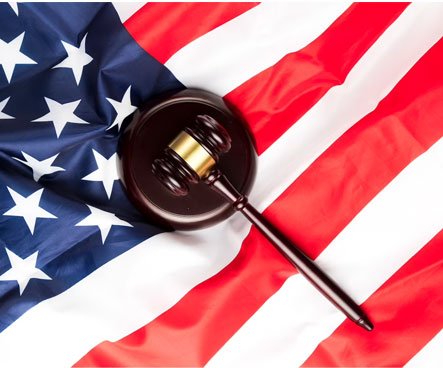Atlanta Federal Insider Trading Attorney

Atlanta Federal Insider Trading Lawyer
Criminal charges for federal insider trading or investment fraud are extremely serious. They can result in severe court-ordered penalties, such as long prison sentences and large fines. Additionally, even securities investigations and charges without a conviction of such crimes can lead to a tarnished reputation. An Atlanta insider trading attorney from The Law Office of Lawrence J. Zimmerman can work with you to ensure that you have the legal support you need.
If you are facing securities litigation related to charges of insider trading, including stock manipulation or defense securities manipulation, then a criminal defense lawyer from our Atlanta-based firm can inform you of your rights and help you navigate the complex legal process associated with such charges. We can review all the evidence against you, identify the weaknesses in the federal prosecution, and work to build a strong defense strategy for your case.
What Are Atlanta Federal Insider Trading Charges?
To understand federal insider trading charges, it’s important to define the concept of insider trading first. Insider trading is a kind of securities fraud. In federal law, this is defined under SEC Rule 10b-5 as the use of any deceptive or manipulative devices in securities transactions.
Insider trading can occur in different contexts and take on multiple forms. However, it usually occurs when an individual makes a sale or purchase of a security based on material nonpublic information that they obtained.
This sale or purchase is made as a breach of trust or confidence that is owed to the security issuer, the issuer’s shareholder, or another individual who serves as the source for the said material nonpublic information.
Atlanta Federal Insider Trading: “Misappropriation” vs. “Classical” Insider Trading Theories
An individual can be charged with an insider trading federal crime when they sell or purchase securities and have an acute knowledge of the material nonpublic information associated with it. Such charges in Atlanta can be based on two main legal theories, which are the “misappropriation” and “classical” theories.
The Misappropriation Theory
Under the misappropriation theory, it is possible for an individual who does not have any connection to a certain organization or the employees there to commit insider trading crimes. All they must do is use material nonpublic information as the basis for purchasing or selling federal securities.
Even though the individual who commits insider trading is not directly associated with the organization, they have used material nonpublic information in a way that compromises the well-being of the security issuer or issuer shareholder.
In essence, such a crime can be convicted if the prosecution can prove that the individual stole the material nonpublic information through dishonest means that breached a confidential or trusting relationship. They then carried out the securities transaction, even if the individual had a particular responsibility to the shareholders.
The Classical Theory
Under the classical theory of insider trading, there must be a fiduciary relationship between the accused and an individual associated with the organization or corporation who has the involved securities. Furthermore, they must either:
- Use material nonpublic information that they obtained as the basis for making a securities trade.
- Fail to come forward to their beneficiaries with such obtained knowledge.
The classical theory is premised on the idea that someone in a position of privilege or power obtains specific sensitive information. They then use it for their own benefit or do not disclose it to shareholders. Such breaches of trust and duty are considered to be fraud crimes.
What Are the Penalties for Federal Insider Trading?
As federal insider trading is considered to fall under the umbrella of securities fraud, it is a serious crime that can have severe consequences. Under federal law (15 U.S.C. §§ 78j(b)) a person who is convicted of a felony insider trading crime can spend up to 20 years in jail, and they may have to pay fines amounting to 5 million dollars.
In some cases, federal prosecutors will prosecute individuals for insider trading under the general securities fraud statute (18 U.S.C. § 1348). The penalties for being convicted under such a statute include up to 25 years in prison and millions of dollars in fines. There is also the possibility that additional charges can be added in tandem with insider trading charges, such as money laundering or wire fraud. This can enhance penalties as well.
FAQs About Atlanta, GA Federal Insider Trading Laws
What Penalties Can I Face for Insider Trading?
While you can face criminal penalties of up to 25 years and millions of dollars in fines for being convicted of insider trading, it’s important to note that you can also face penalties from the SEC. The SEC can require corporations or organizations involved in insider trading to pay civil fines, and they can strip people involved in insider trading of their professional titles.
What Defenses Can I Use to Fight Federal Insider Trading Charges?
Some common defenses that are used include:
- Showing that the financial transactions in question were not carried out while the defendant had the material nonpublic information
- Proving that the material nonpublic information was already shared and was publicly available when the trading took place
What Is Tipper-Tippee Insider Trading?
A tipper-tippee insider trading case involves a “tippee” and a “tipper.” Individuals known as “tippees” receive information from a person in a privileged position in an organization or corporation, known as the “tipper,” and use that information to exchange securities. A tippee can only be considered guilty if it can be proven that they knew that the tipper was breaching confidence and breaking the law when they received the material nonpublic information.
What Is the Optimal Defense Strategy for My Federal Insider Trading Case?
The optimal defense strategy for an insider trading case will depend on the details of the case, such as the criminal history of the defendant and the amount of money involved in the transactions. It’s important to work with an experienced and knowledgeable lawyer who has worked on federal insider cases similar to yours and had success with them.
Get Connected to an Experienced and Dedicated Atlanta Insider Trading Defense Firm
If you are facing serious federal insider trading charges, then you already know that the stakes are high. Therefore, it’s critical to work with a criminal defense team that you trust. The Law Office of Lawrence J. Zimmerman has years of experience working on highly complex and high-profile federal insider trading cases. We are ready to leverage our wealth of knowledge and resources to fight to protect your future and reputation. Contact us today to start building your case.
Office Location
Meet With A Lawyer
Schedule A Consultation
Fields Marked With An “*” Are Required









